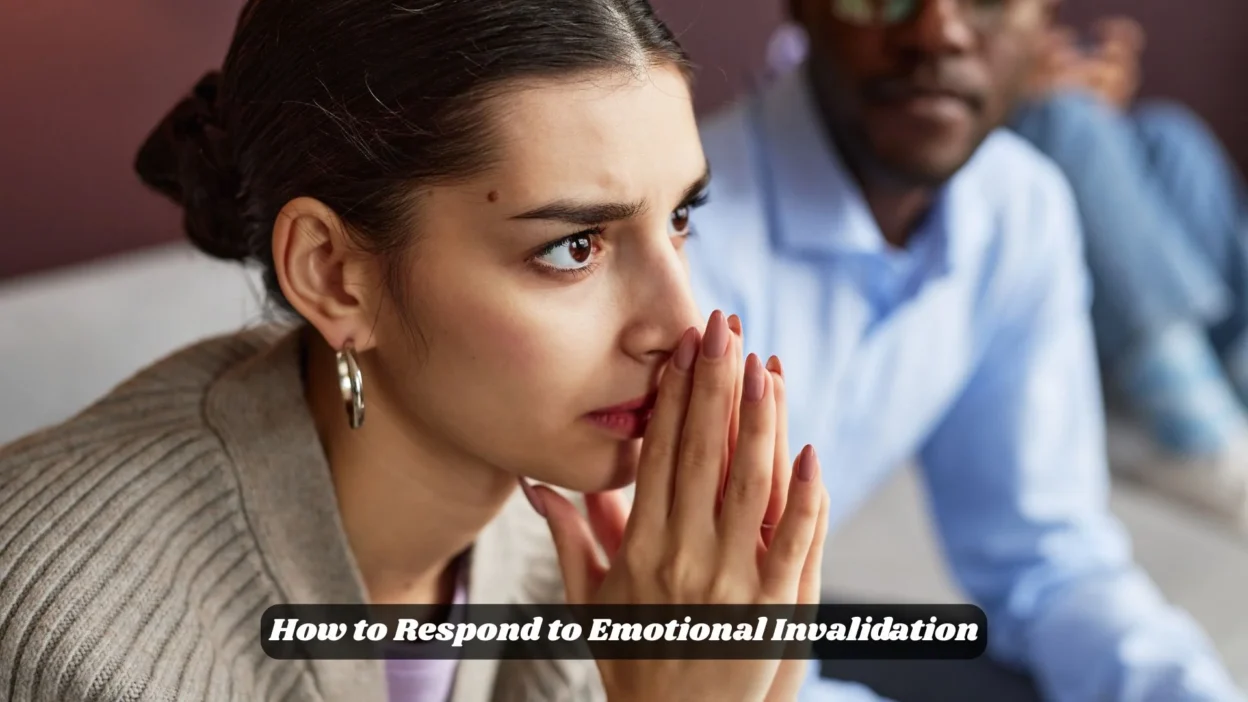If you’ve ever walked away from a conversation feeling dismissed, misunderstood, or emotionally shut down, you’re likely searching for how to respond to emotional invalidation.
It’s that frustrating moment when someone brushes off your feelings or tells you to “get over it.” The good news? You’ve just found exactly what you need.
This article offers practical, real-life phrases you can use to handle emotional invalidation with clarity, strength, and grace.
Different situations call for different responses. Whether you’re at work, with friends, or in a tough family moment, knowing how to respond calmly but firmly can make all the difference.
Here, you’ll discover formal, informal, idiomatic, and professional ways to say how you feel and stand up for your emotions without conflict.
Sorry Generator
Formal Ways to Say How to Respond to Emotional Invalidation
These responses are polite, composed, and suited for serious or respectful conversations.
- I understand you may see it differently, but my feelings are still valid
- I need you to acknowledge my experience even if you don’t agree
- It would mean a lot if you considered my emotions seriously
- I’m expressing this because it matters to me deeply
- Let’s recognize that emotions can be complex and unique
- I’d appreciate being heard without judgment
- This conversation affects me more than it may appear
- I’m looking for understanding, not agreement
- Please consider that my feelings come from a real place
- Emotional pain deserves respect, just like physical pain
- I’m sharing this for the sake of open communication
- I believe my feelings are worth expressing
- Everyone has different triggers and reactions
- We may not align, but my emotions are still real
- I would like a response that reflects empathy
- Silence or dismissal doesn’t make the pain disappear
- I’m hoping for a compassionate space to talk
- A validating response helps us connect more honestly
- Let’s approach this with mutual respect
- Your reaction is valid, and so is mine
- I’m not looking to be right, only to be heard
- Understanding isn’t always agreement
- Let’s give each other room to feel
- Being vulnerable doesn’t mean I’m overreacting
- Please don’t downplay my concerns
- I would like to feel emotionally safe in this discussion
- Empathy goes a long way in tough conversations
- I value a space where emotions aren’t minimized
- I need to know that my voice matters here
- It’s hard to keep talking when I feel dismissed
- Emotional honesty should be welcomed, not avoided
Informal Ways to Say How to Respond to Emotional Invalidation
These are relaxed, everyday responses used in casual settings with friends, family, or peers.
- That really hurt me
- I feel like you’re not taking me seriously
- It sucks to feel like I’m not being heard
- Can you just listen without fixing it?
- I need you to get where I’m coming from
- I’m not trying to be dramatic, I’m being real
- This means something to me, even if it doesn’t to you
- I’m opening up, and I wish you’d meet me there
- I feel shut down when you say stuff like that
- That kind of response makes me not want to share
- I’m not overreacting, this is how I actually feel
- Please don’t brush this off
- I need you to see this from my side
- That made me feel small
- I just want to feel heard
- Can you not make light of this?
- I opened up because I trust you
- That response makes me feel like my feelings don’t count
- I’m not okay with being dismissed like that
- It feels like you’re ignoring what I said
- I’m sharing this for a reason
- Please just let me be real with you
- I’m not making it up
- That’s not fair to say
- I don’t feel safe talking like this
- This hurts more than you think
- I didn’t expect that kind of reaction
- I need more support, not sarcasm
- That made me want to shut down
- I need you to take me seriously, even if it’s hard
Idiomatic Ways to Say How to Respond to Emotional Invalidation
These are expressive, figurative ways to respond that add color to what you feel.
- That hit me where it hurts
- You’re brushing this under the rug
- I feel like I’m talking to a brick wall
- My feelings are falling on deaf ears
- That’s a slap in the face
- I feel left out in the cold
- You’re cutting me off at the knees
- That poured salt in the wound
- I feel like I’m being shut down
- You just pulled the rug out from under me
- I’m stuck between a rock and a hard place
- That response threw cold water on me
- I feel like my heart’s on my sleeve, and no one cares
- That’s like being hit below the belt
- It’s like shouting into the void
- You’re turning a blind eye to what I feel
- I’m tired of being swept aside
- That’s like adding insult to injury
- You left me hanging
- I feel like I’m chasing my tail here
- You pulled the plug on this conversation
- My voice is getting lost in the noise
- You’re steamrolling over my emotions
- That was a cold shoulder
- I’m tired of walking on eggshells
- I feel like I’m carrying this emotional weight alone
- You’re throwing my feelings under the bus
- I feel like my heart’s being overlooked
- It’s like talking to an empty chair
- You left me out in the rain
- My emotions aren’t just smoke and mirrors
Professional Ways to Say How to Respond to Emotional Invalidation
Use these phrases in emails, meetings, or workplace chats where diplomacy and clarity are key.
- I would appreciate if we could acknowledge the emotional aspect of this
- Let’s not overlook the human element here
- It’s important that all perspectives, including emotional ones, are considered
- I felt unheard during that discussion
- I’d like to revisit that moment, as it impacted me emotionally
- A validating space leads to more open communication
- My concern was dismissed, and that affected my input
- Emotions play a key role in team morale
- I’d like to clarify how that interaction felt from my side
- Can we ensure space for emotional safety in our dialogues?
- Let’s take a moment to reflect on the tone used
- I felt that my experience was minimized
- Mutual understanding strengthens workplace culture
- That response didn’t feel supportive
- It’s valuable to acknowledge emotional responses in decision-making
- Emotional well-being affects performance
- We all bring personal experiences into our work
- I hope we can create a space for honest expression
- I sensed some invalidation in that reply
- I’d like my emotional input to be taken seriously
- Dismissing emotions can create disconnect
- I’m aiming for a culture of respectful dialogue
- I’d like to be met with empathy
- Let’s remain mindful of emotional sensitivity
- My feelings on this are important to the outcome
- It’s essential to balance facts with empathy
- Emotional invalidation can lead to disengagement
- I felt emotionally unsupported in that exchange
- Respectful tone fosters better collaboration
- I’d like to bring emotional transparency to the table
Conclusion
Knowing how to respond to emotional invalidation can protect your well-being and build stronger relationships. Whether you choose a formal, casual, idiomatic, or professional approach, your feelings deserve to be seen, heard, and respected. Start using these phrases in real conversations and notice how your emotional confidence grows. Practice often. Speak kindly. Stand tall.

James Smith is an acclaimed fiction writer and storyteller whose work explores the human condition through a lens of emotional depth and sharp observation. Known for his captivating prose and unforgettable characters, James has carved a unique space in contemporary literature.
With a background in English Literature and over a decade of writing experience, his stories have been featured in numerous literary magazines and anthologies. James is passionate about mentoring emerging writers and frequently speaks at literary events and creative writing workshops.
Selected Works:
-
Beneath the Quiet Sky
-
The Echoes We Leave Behind
-
Fragments of a Forgotten Summer




